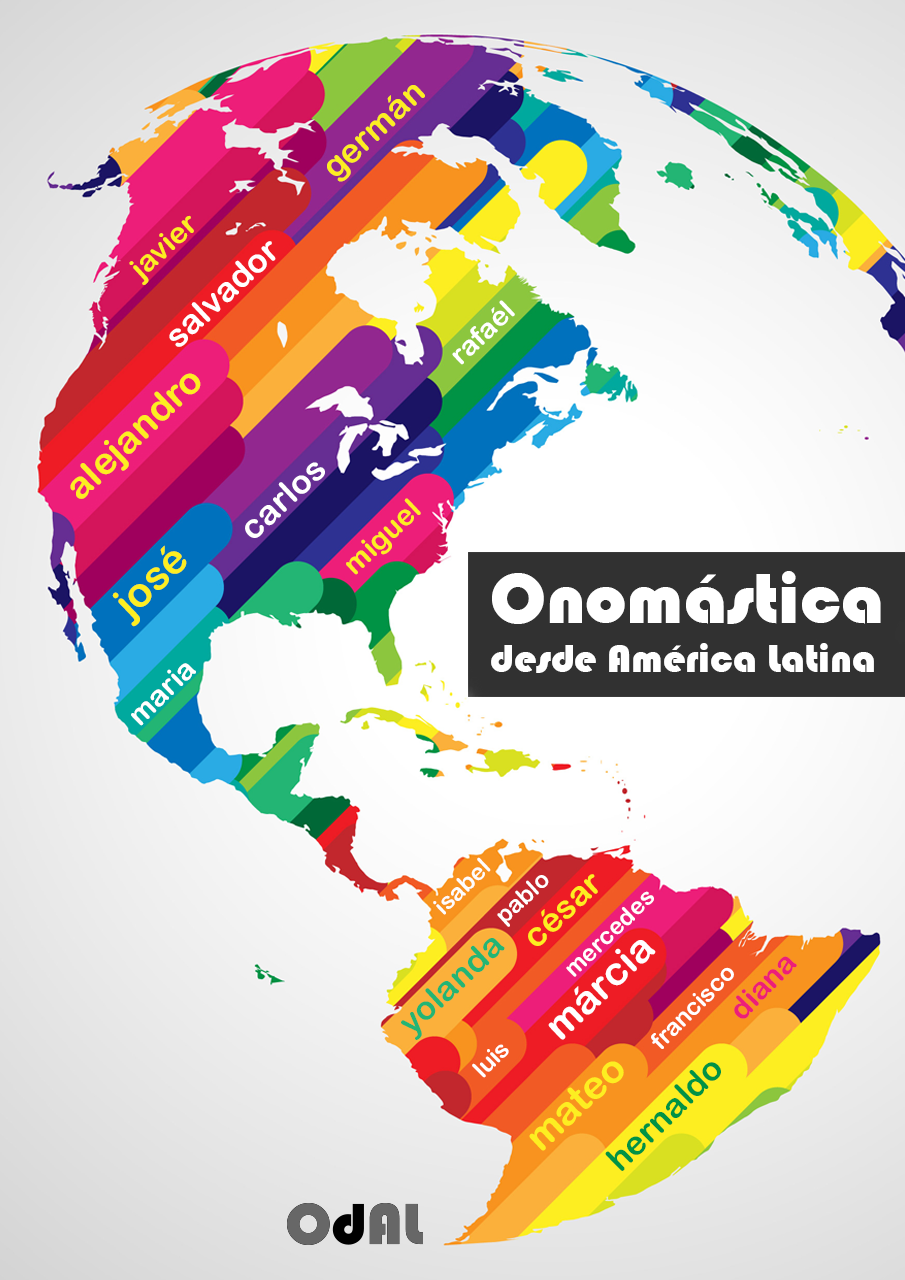Los nombres propios en la literatura : ensayos excéntricos para un modelo semántico
DOI:
https://doi.org/10.48075/odal.v4i1.31123Palavras-chave:
Nombre propio, Semántica, Literatura, SignificadoResumo
En los albores de la conformación de la lingüística y de la semántica como disciplinas científicas durante el siglo XIX, los nombres propios y el significado se erigieron como dos instancias escindidas, cuya relación parecía nula, o más bien, de una ignorancia recíproca. Sin embargo, en esta intersección que se forma entre la filosofía del lenguaje, la semántica lingüística y la literatura –como agenciamiento interdisciplinario–, de lo que se trata es de ponderar en qué medida podría postularse un “significado” del nombre propio personal. Esto es: ¿no sería posible, a partir de un enfoque pragmático y funcional de la semántica dar cuenta de aquellos caracteres de significado que la literatura viene escenificando hace tanto tiempo? Para esto, proponemos a partir de los aportes de Salvador Gutiérrez Ordoñez, Stephen Ullman, Willy Langendonck, Richard Coates, entre otros, un modelo semántico “excéntrico”, esto es, levemente descentrado, que resulte propicio para el análisis de la potencia de semanticidad del nombre propio, a partir de su transacción fluida entre la langue y la parole.
Referências
Bahr, C., & Hernández Arocha, H. (2018). ¿Tienen significado los nombres propios? Una aproximación al debate inconcluso en torno a la semántica y (difusa) categorización de nombres propios y comunes. Zeitschrift Für Romanische Philologie, 134(2), 329–348.
Barthes, R. (2006). Proust y los nombres. In El grado cero de la escritura seguido de Nuevos ensayos críticos. Siglo XXI.
Birus, H. (1978). Poetische Namengebung: zur Bedeutung der Namen in Lessings “Nathan der Weise” (Vol. 270). Vandenhoeck u. Ruprecht.
Bloomfield, L. (1970). Language. Payot.
Coates, R. (2012). Eight issues in the pragmatic theory of properhood. Acta Linguistica Lithuanica, 66, 119–140.
Corripio Pérez, F. (1996). Diccionario etimológico general de la lengua castellana. B.
Debus, F. (2002). Namen in literarischen Werken: (Er-) Findung–Form–Funktion. Steiner.
Frege, G. (2005). Sobre sentido y referencia. In L. M. Valdés Villanueva (Ed.), La búsqueda del significado. Tecnos.
Gardiner, A. (1954). The theory of proper names: a controversial essay. Oxford University Press.
Greimas, A. J. (1987). Semántica estructural: investigación metodológica. Gredos.
Gutiérrez Ordóñez, S. (1992). Introducción a la semántica funcional. Síntesis.
Jespersen, O. (1924). The philosophy of grammar. George Allen & Unwin.
Kohlheim, V. (2018). Proper names in literature: A “reevaluation of all values.” Onoma, 53.
Lyons, J. (1997). Semántica lingüística: una introducción. Paidós.
Martinet, A. (1967). Connotations, poésie et culture. In To Honor Roman Jakobson 2. Mouton.
Martínez, J. A. (1975). Propiedades del lenguaje poético. Archivum.
Mill, J. S. (1882). A system of logic. Harper & Brothers.
Paul, H. (1920). Prinzipien der Sprachgeschichte. Niemeyer.
Pottier, B. (1976). Lingüística general. Gredos.
Russell, B. (2005). Descripciones. In L. M. Valdés Villanueva (Ed.), La búsqueda del significado. Tecnos.
Searle, J. R. (2005). Nombres propios y descripciones. In L. M. Valdés Villanueva (Ed.), La búsqueda del significado. Tecnos.
Solmsen, F. (1922). Indogermanische Eigennamen als Spiegel der Kulturgeschichte. Ernst Fraenkel.
Strawson, P. F. (2005). Sobre el referir. In M. Valdés Villanueva (Ed.), La búsqueda del significado. Tecnos.
Strawson, P. F., & Gochet, P. (1970). Phrase et acte de parole. Langages, 19-33.
Ullman, S. (1976). Semántica: introducción a la ciencia del significado. Aguilar.
Van Langendonck, W. (2007). Theory and typology of proper names. Mouton de Gruyter.
Wackernagel, W. (1874). Kleinere Schriften (Vol. 3). S. Hirzel.
Wittgenstein, L. (2021). Investigaciones filosóficas. Trotta.
Downloads
Publicado
Como Citar
Edição
Seção
Licença
Copyright (c) 2023 Ulla Szaszak Bongartz

Este trabalho está licenciado sob uma licença Creative Commons Attribution-NonCommercial-ShareAlike 4.0 International License.
Aviso de Direito Autoral Creative Commons
Política para Periódicos de Acesso Livre
Autores que publicam nesta revista concordam com os seguintes termos:
1. Autores mantém os direitos autorais e concedem à revista o direito de primeira publicação, com o trabalho simultaneamente licenciado sob a Licença Creative Commons Attribution que permite o compartilhamento do trabalho com reconhecimento da autoria e publicação inicial nesta revista.
2. Autores têm autorização para assumir contratos adicionais separadamente, para distribuição não-exclusiva da versão do trabalho publicada nesta revista (ex.: publicar em repositório institucional ou como capítulo de livro), com reconhecimento de autoria e publicação inicial nesta revista.
3. Autores têm permissão e são estimulados a publicar e distribuir seu trabalho online (ex.: em repositórios institucionais ou na sua página pessoal) a qualquer ponto antes ou durante o processo editorial, já que isso pode gerar alterações produtivas, bem como aumentar o impacto e a citação do trabalho publicado (Veja O Efeito do Acesso Livre).
Licença Creative Commons
Esta obra está licenciada com uma Licença Creative Commons Atribuição-NãoComercial-CompartilhaIgual 4.0 Internacional, o que permite compartilhar, copiar, distribuir, exibir, reproduzir, a totalidade ou partes desde que não tenha objetivo comercial e sejam citados os autores e a fonte.

